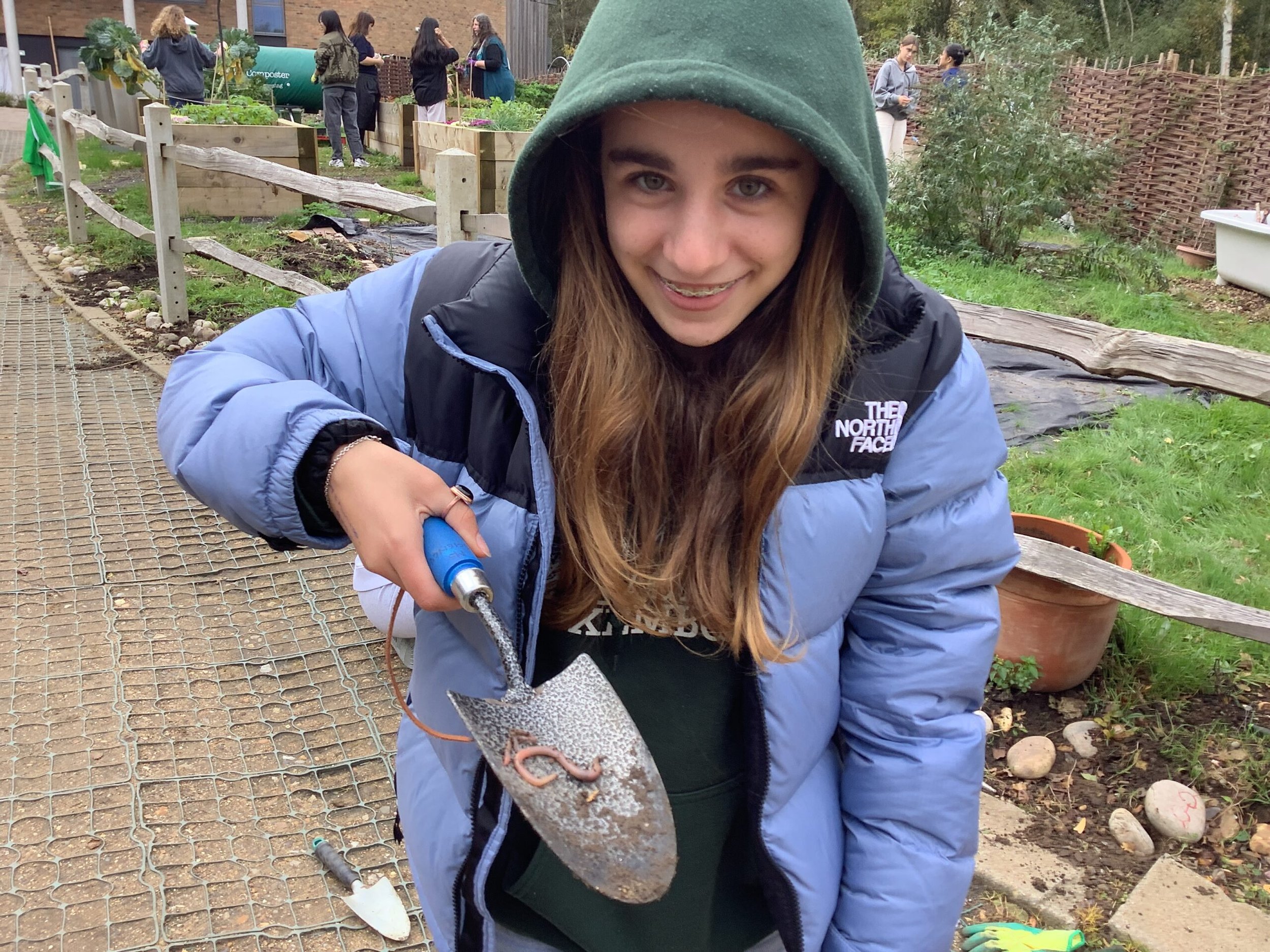ACS Cobham International School Kitchen Garden
The Middle School Library backs up onto an extremely biodiverse ancient wood that’s nestled along the River Mole in Surrey. We were very fortunate to have installed in previous years a student-designed library patio for people to enjoy the warmer months. We initially had an elective course for them to create to scale drawings for a competition with the winners having their design chosen to be made a reality. We ended up with a beautiful and relaxing outdoor library space with recycled picnic tables and indigenous plants that supported our local wildlife. The area also became a gathering place for the students in the mornings during Covid. After the success of this initiative the community decided to develop a derelict area adjacent to the patio and thought that it would be perfect for a kitchen garden. First we installed a poly tunnel where we could grow our seedlings and then we moved on to putting in a natural woven hazel fence around the area that we had designated for the veggies. During this time we applied for a grant for the wood to build our sturdy raised beds.
Separately we realised that we (along with the rest of the world!) we were wasting an incredible amount of food on campus. Thus we decided to use our iCare curriculum to teach 8th grade students how difficult it was to grow food by assigning them each to be responsible for a bed in the garden. At this time we also installed an industrial size food composter to both use as a teaching tool and to handle part of the food waste. The food would go into the composter (which has a corkscrew design inside) and then would be stored in bins for three months. The longterm goal is that we will eventually be able to cyclically use compost that we create from our food waste in the kitchen garden.
The first year we planted out the garden was a bit of a learning curve. We used the hügelkultur style of planting the beds, which requires nutrient rich decaying matter, such as old leaves, rotten sticks and logs, moss, etc., to be at the bottom and enables the topsoil to have a constant supply of the beneficial substances needed for growth. Some of the vegetables did better than others (especially pumpkin and lettuce which were eaten in our Dining Hall) and we had a very hot summer so that was also challenging. We even had to replace the poly tunnel covering when it was blown off during a storm. However, a lot was learned from the experience and we are just beginning our second major growing season in March 2023. We are liaising with the catering department to grow basil, lettuce, rocket and herbs, which will also help with the school’s self-sufficiency.




























